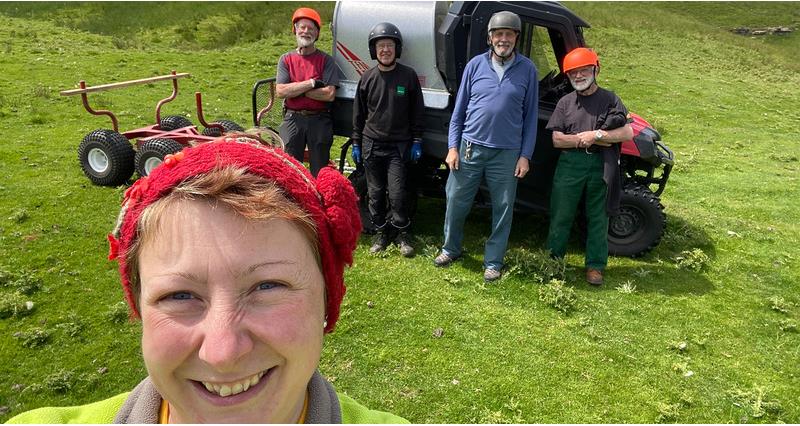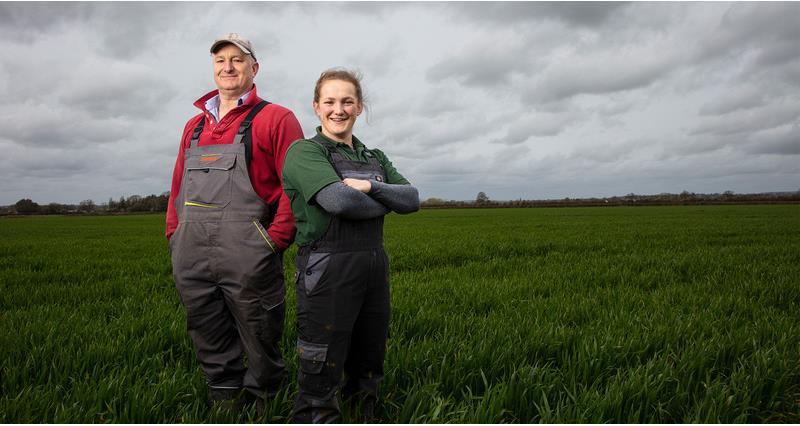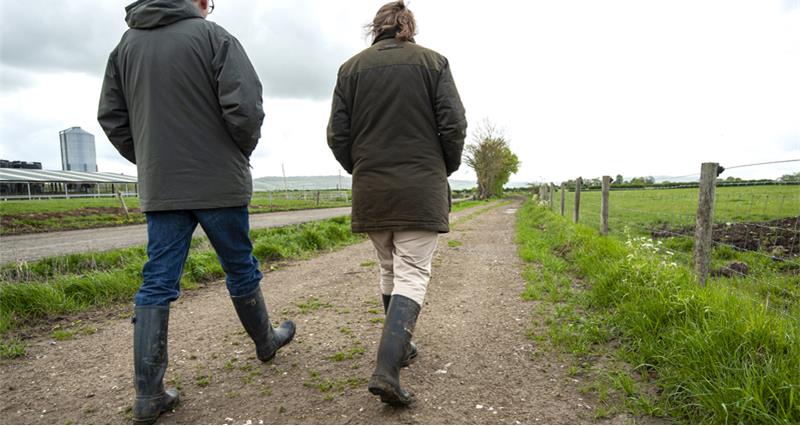Health and safety legislation is rarely top of the list of farmers’ interests, according to Demelza Lowe of Lowe Maintenance (forestry and land-based training).
But in an industry with one of the highest rates of work- based injuries and fatalities, it is essential that all farmers take steps to make their farms safer places to live and to work.
“The first thing I ask people to reflect on is ‘who is most affected if you don’t come home from work?’,” she said.
“It’s your family – not your employer or business. You’re not indispensable at work but you are at home. Whether you’re an employee, employer, or simply an observer, we all have an innate duty to protect one another and, most importantly, ourselves. Putting yourself or others in hazardous conditions should not be considered part of the job.”
Working Hours
Long hours are often a key reason for accidents happening. As farms prepare for busy periods of field work it is important that everyone on farm is trained to use the machinery and knows the necessary checks to carry out, both before starting and while using these machines.
“Look at your manufacturer’s recommendations and put together a checklist for each and every machine,” Demelza said.
“Ensure that everyone operating the machine follows the list before they drive it.
“There are now apps available that link pre-use checks with QR codes on tractors, which can be an easy way to do everything that is reasonably practical to keep safe.
“Whether you’re an employee, employer, or simply an observer, we all have an innate duty to protect one another and, most importantly, ourselves. Putting yourself or others in hazardous conditions should not be considered part of the job.”
Demelza Lowe, farm safety expert, Lowe Maintenance
It is important to know the specifications and requirements of individual machines that workers are likely to be using.
“As an employer you must ensure that your equipment is fit to use,” she added.
“Although it can be tempting to work through tiredness, this can be fatal. It’s not always a part of our farming culture, but it’s really important to take regular breaks and to ensure that you eat and drink enough.”
Training
It is often assumed that young people are responsible for most farm accidents, but the majority of fatal injuries recorded on farms in the year to 31 March 2022 involved older farmers and workers.
“Younger farm workers may be given the necessary inductions in health and safety and enrolled on appropriate training while in college,” Demelza explained.
“However, it’s vital that everyone keeps up to date with their training through refresher courses and being appropriately trained on how to use new pieces of equipment when they arrive.
“Don’t assume that someone will know how to use a piece of equipment– give them the training and make sure that it is recorded and documented.”
Official training offers the opportunity to use vehicles in challenging conditions, such as on different or unfamiliar terrain, within a safe learning environment.
“Anyone using a quad bike or ATV sit-in needs to have had the appropriate training, and this needs to be on varied terrains. I can’t think of any farm where there isn’t a slope of some kind.
“For tractor driving there are City and Guild training courses as well as the DVLA option. Make use of funding where available,” Demelza advised.
Different machines may have different minimum age requirements and it is vital that those are checked and kept to. Insurance will not cover drivers who are too young to operate specific machines.
The majority of fatal injuries recorded on farms in the year to 31 March, 2022 involved older farmers and workers
Risk Assessments
Risk assessments aren’t just for big businesses or those who are legally obliged to do so because they employ more than five people.
“All farming businesses, even sole traders, should have written risk assessments in place which are regularly reviewed, updated, and – most importantly – followed,” Demelza said.
“Keep them in a file as they will also be evidence if there is an accident on farm.”
NFU members can access advice on preparing risk assessments in the member resources section of NFUonline. Once initial assessments have been set up it is easy to amend them to changing circumstances on farm.
“Anyone new on farm should be shown the risk assessments and talked through them as part of their induction on farm,” adds Demelza.
“Review risk assessments with existing team members as part of their continued development and don’t forget to read and refresh yourself too.”
Health and safety isn’t the most engaging topic on farm, and can be overlooked when farmers have so many other demands on their time and energy.
However, it is a subject that needs to be covered thoroughly and addressed.
“Rather than perceiving processes to be a blocker, you should be having regular, transparent conversations with your team to discuss how you can do things better, safer, and in many cases more efficiently,” Demelza said.
“Even seemingly minor injuries can have a big impact and when accidents happen you and/or your family will have to live with the consequences.
“It’s better to take the time to make sure that you are minimising those risks.”
For more information about Lowe Maintenance visit lowe-maintenance.co.uk
View from the NFU
Health and safety is the responsibility of everyone on farm. In order to change the reputation of agriculture as the most unsafe industry, we need to change the culture and attitudes of people in the industry.
All too often we hear “it won't happen to me”, “I have always done it this way”, and “I don’t have the time”. This needs to be replaced with ”it could happen to me, but I am going to do as much as possible so that it doesn’t”.
Prevention is always better than reaction, and it should not be the case that incidents have to occur for people to take action and change their practices.
These preventative measures do not have to be costly or time consuming. They can be simple actions such as:
- Following Safe Stop procedures.
- Wearing a helmet when using an ATV.
- Taking five minutes before each task to think about what you are going to do and how you can make it safer.
- Checking your machine every time you are going to use it to make sure it is working properly.
These actions have been shown to save lives, so the question farmers need to be asking is whether having an extra few minutes every day by not doing these safety measures is worth the risk to life.


